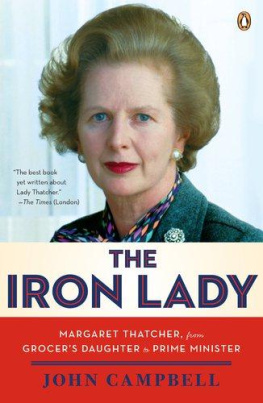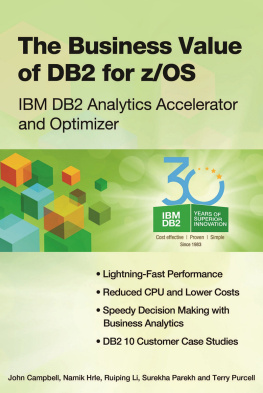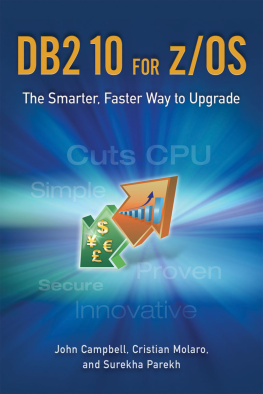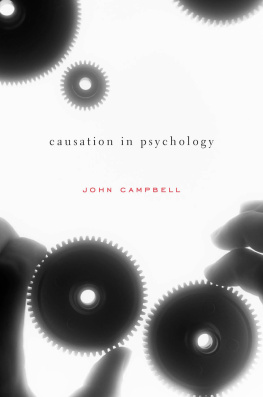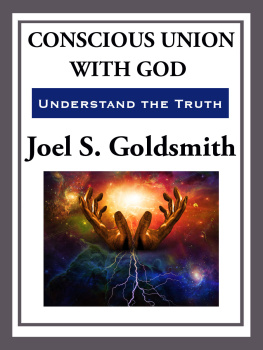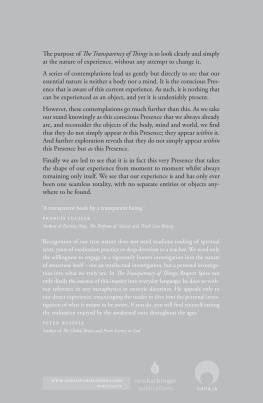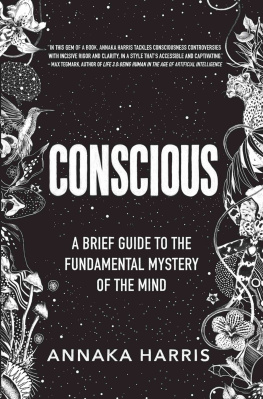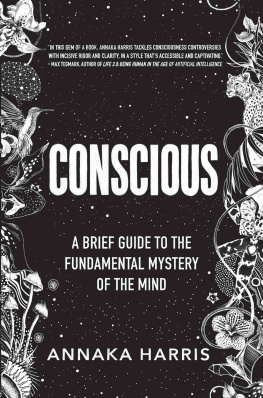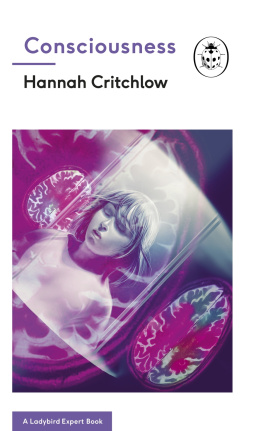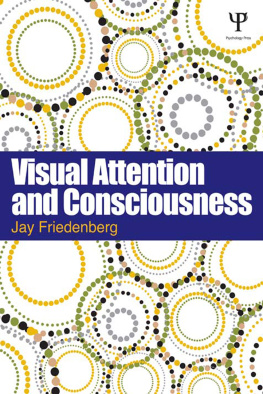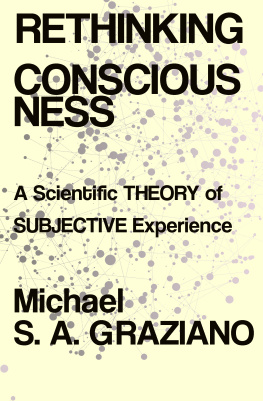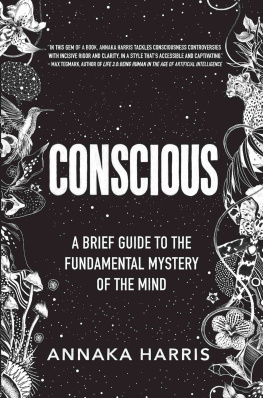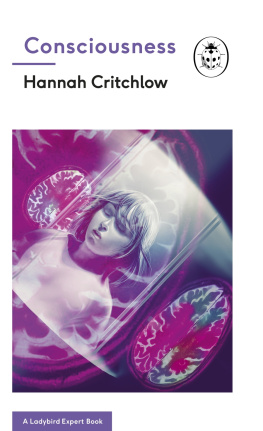
Campbell, John , Wilde Professor of Mental Philosophy, Oxford University
Reference and Consciousness
Publication date 2002 (this edition)
Print ISBN-10: 0-19-924381-6
Print ISBN-13: 978-0-19-924381-5
doi:10.1093/0199243816.001.0001
Abstract: Conscious attention to an object, singling it out in experience, provides knowledge of the reference of a demonstrative term. Knowledge of reference is the foundation of the ability to verify propositions about the object and of the ability to act on the object. To understand the relations between knowledge of reference, verification, and action, we have to look at the relations between conscious attention, visual information processing, and the motor system.Why should it be specifically conscious attention that provides the knowledge of reference? Knowledge of reference demands acquaintance with the individual, categorical substances around us, and not merely collections of affordances. I argue that only experience of objects can provide this kind of acquaintance with individual substances.The approach is extended beyond understanding one's own uses of visual demonstratives to cases of joint attention and to memory demonstratives. The approach has implications for Dummett's anti-realism and Quine's theses of inscrutability and indeterminacy. The book concludes with remarks on the metaphysics of individual substances.
Keywords: attention,consciousness,demonstratives,perception,reference
Oxford Cognitive Science Series
Reference and Consciousness
end p.i
Oxford Cognitive Science Series
Published in the series
Concepts: Where Cognitive Science Went Wrong
Jerry A. Fodor
Context and Content
Robert C. Stalnaker
Mindreading
Stephen Stich and Shaun Nichols
Face and Mind: The Science of Face Perception
Andy Young
end p.ii
Reference and Consciousness
CLARENDON PRESS OXFORD
2002
end p.iii

Great Clarendon Street, Oxford ox2 6dp
Oxford University Press is a department of the University of Oxford
It furthers the University's objective of excellence in research, scholarship,
and education by publishing worldwide in
Oxford New York
Auckland Bangkok Buenos Aires Cape Town Chennai
Dar es Salaam Delhi Hong Kong Istanbul Karachi Kolkata
Kuala Lumpur Madrid Melbourne Mexico City Mumbai Nairobi
So Paulo Shanghai Taipei Tokyo Toronto
Oxford is a registered trade mark of Oxford University Press
in the UK and in certain other countries
Published in the United States by
Oxford University Press Inc., New York
John Campbell 2002
The moral rights of the authors have been asserted
Database right Oxford University Press (maker)
First published 2002
All rights reserved. No part of this publication may be reproduced,
stored in a retrieval system, or transmitted, in any form or by any means,
without the prior permission in writing of Oxford University Press,
or as expressly permitted by law, or under terms agreed with the appropriate
reprographics rights organization. Enquiries concerning reproduction
outside the scope of the above should be sent to the Rights Department,
Oxford University Press, at the address above
You must not circulate this book in any other binding or cover
and you must impose this same condition on any acquirer
British Library Cataloguing in Publication Data
Data available
Library of Congress Cataloging in Publication Data
Campbell, John, 1956
Reference and consciousness / John Campbell.
p. cm. (Oxford cognitive science series)
Includes bibliographical references.
1. Attention. 2. Reference (Linguistics). 3. Consciousness. I. Title. II. Series.
BF321 .C36 2002 128'3dc21 2001055468
ISBN 0-19-924380-8
ISBN 0-19-924381-6 (pbk.)
end p.iv
Preface
In May 1995, Naomi Eilan and Michael Martin organized a one-day meeting in London on 'Attention and Consciousness' in which I was to be cosymposiast with Jon Driver. Driver's talk, presenting results about the connections between acts of perceptual attention in different sensory modalities, seemed to me fascinating but difficult to interpret in terms of its implications for the character of experience. I found, however, an immediate and intuitive connection between Driver's findings and a problem that had long interested me, namely the connections between references to objects made on the basis of perceptions of them in different sensory modalities, such as sight or touch or hearing. To refer to an object on the basis of seeing it seems to require attention to that object; to refer to an object on the basis of hearing it or touching it seems to require attention to that object. So in principle, I thought, it ought to be possible to use results on relations between acts of attention in different sensory modalities to illuminate the relations between, for example, demonstratives referring to seen objects and demonstratives referring to touched or heard objects.
In pursuing this line of thought after the conference, though, it quickly became apparent to me that the fundamental problem is to articulate the relation between attention to an object and knowledge of the reference of a demonstrative referring to it. The issue of the relations among the sensory modalities is touched on only glancingly in this book, though I think there are ready extensions of the present approach to that topic. Rather, I have gone back to the original topic of the London conference, to find the relations now between three phenomena: attention, knowledge of reference, and our experience of the world.
In finding my way around the basic conceptual links between these three notionsattention, knowledge of reference, and experienceI have been greatly helped by a long series of sceptical challenges from Philippa Foot. Christopher Peacocke provided a detailed set of comments on four chapters from an early draft. Quassim Cassam and Timothy Williamson helped me see the exact shape of many particular arguments in an area whose scope, though narrowly defined, is quite far-reaching. And most of all, I have tried in one way or another to address Michael Dummett's deeply thought-through set of challenges for any account of knowledge of reference.
end p.v
On vision science, I learned a lot from discussions with Charles Spence, Vincent Walsh, Kia Nobre, Peter McLeod, Alan Allport, Andrew Parker, and Stephen Palmer. In this book I appeal only to some simple, robust points about visual attention. But these people helped me find my way to them, and to see why even those findings might be problematic.
In connecting the empirical with the philosophical I was also much assisted by a centre for such work in the U.K., the Consciousness and Self-Consciousness group based at Warwick University, in particular to Naomi Eilan, Christoph Hoerl, Teresa McCormack, and Johannes Roessler. At various points I have had sustained and helpful discussion of the approach with Paul Boghossian, Bill Brewer, David Charles, Tamar Gendler, Alison Gopnik, John O'Leary Hawthorne, Sydney Shoemaker, Charles Travis, and David Wiggins. Jeremy Butterfield forced a number of changes to my discussion of causation in Chapter .
The basic forum in which I have discussed these ideas has been a set of graduate classes given in Oxford in most terms since 1995. I have had countless illuminating and searching comments from many participants; in particular, I would like to thank Stephen Butterfill, Imogen Dickie, Kostja New, Hanna Pickard, and Oliver Pooley.


